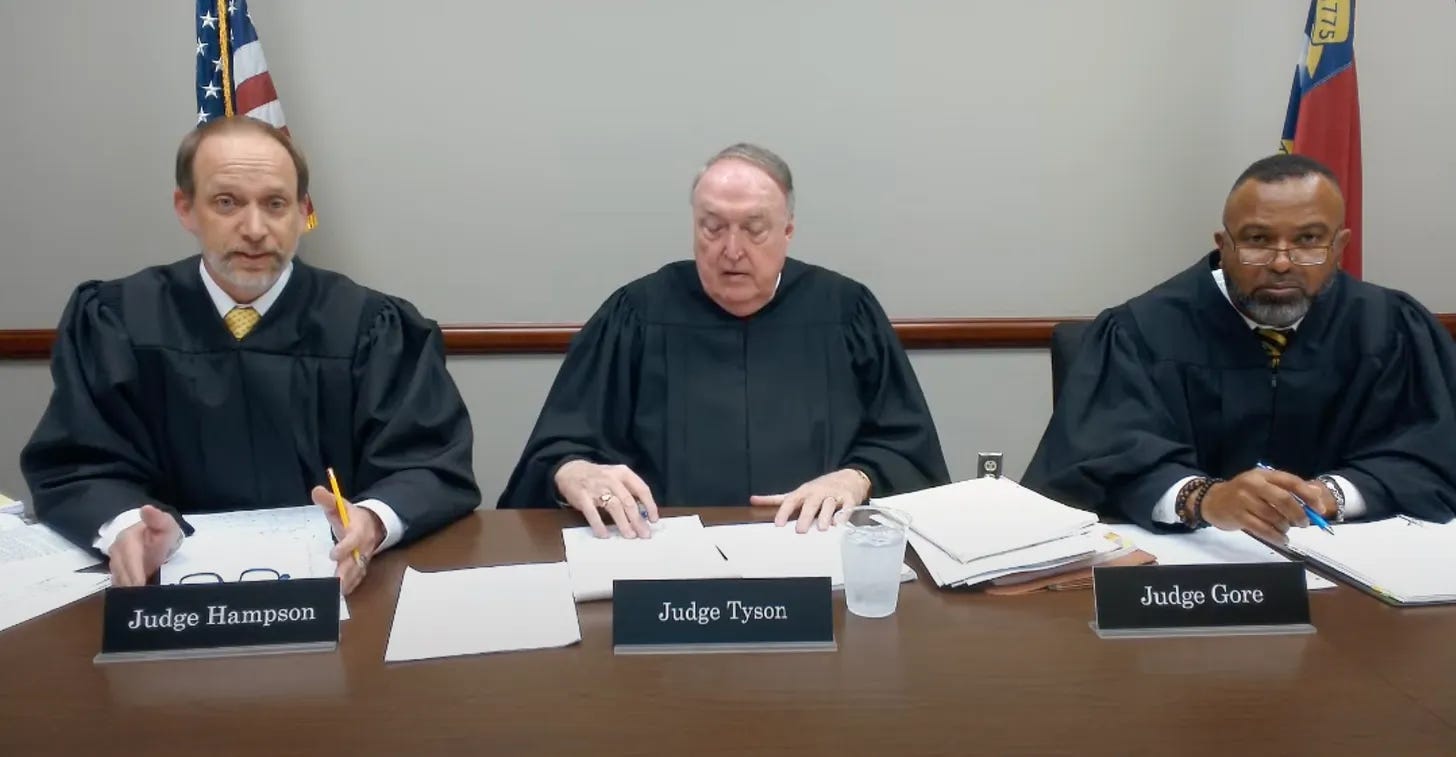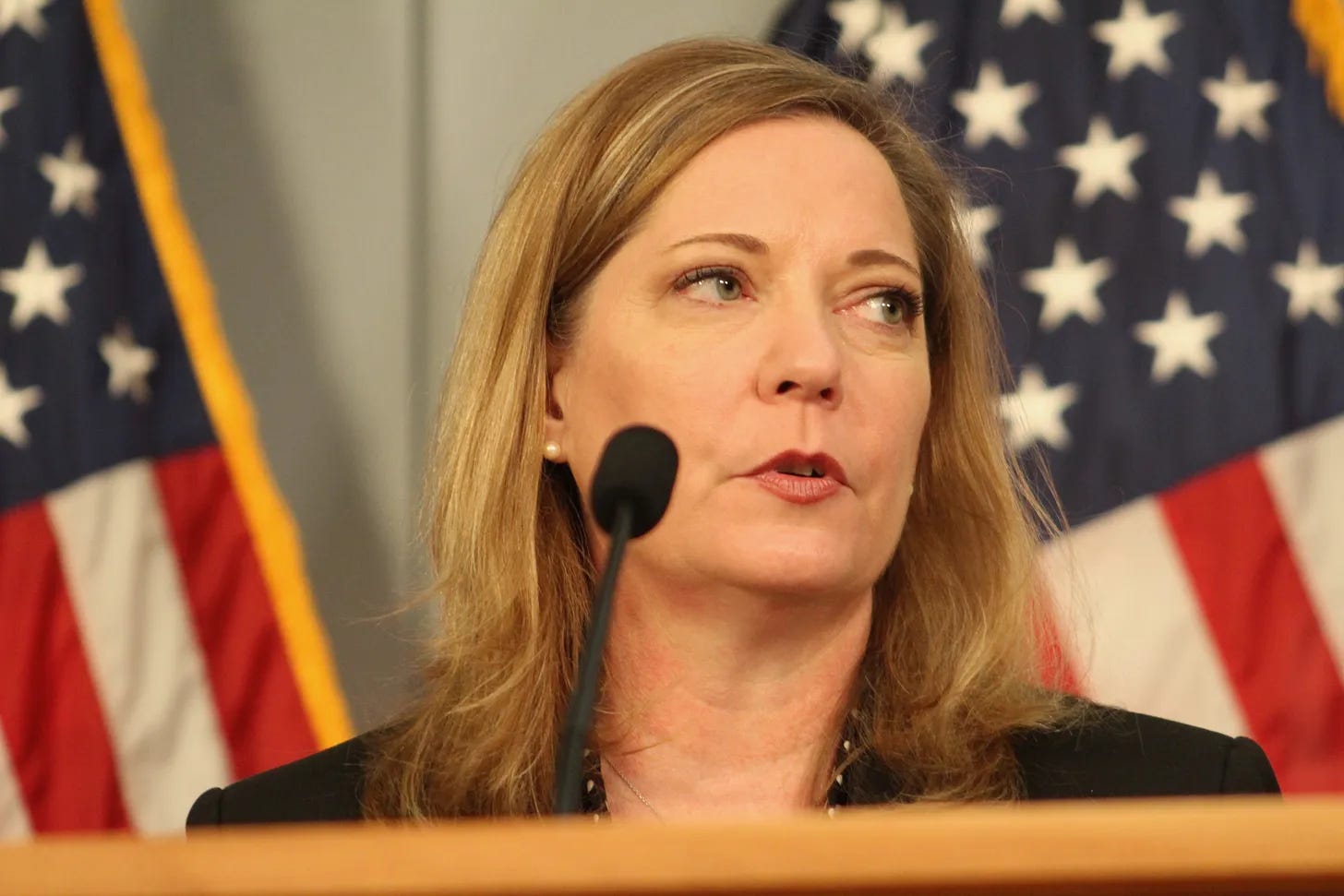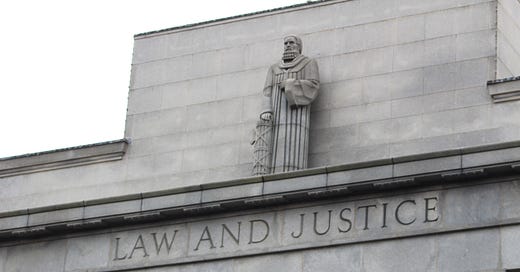At least 30 'never residents' wrongly included in Griffin's election protest at risk of having ballots tossed
A new Anderson Alerts analysis shows Judge Jefferson Griffin falsely accused at least 30 North Carolina voters of never residing in the state, including many longtime voters and some in-person voters.
Reader’s Note: In the public interest and given the urgency of the subject amid possible state and federal court intervention, the paywall for this story is being lifted. To support my continued reporting, please consider a paid subscription to Anderson Alerts here. Step-by-step instructions for existing unpaid readers is available here. If you value this kind of thorough reporting, please consider helping to sustain it.
Republican Court of Appeals Judge Jefferson Griffin has wrongly accused at least 30 North Carolina voters of never residing in the state, according to a comprehensive Anderson Alerts review of state voting records.
Of the 260 unique people included in Griffin’s “never resident” protest, 22 have voted in-person at least once. Basic online searches performed by Anderson Alerts identified eight additional voters Griffin falsely accused of having never lived in North Carolina.
The analysis further identified a cohort of 105 additional voters who had cast a mail-in ballot in prior elections without issue, all of whom would require further review from state elections officials to determine their eligibility. Three voters didn’t appear in the state’s voter lookup tool.
The remaining 122 “never residents” cast a mail-in ballot in the November 2024 election and didn’t vote in prior elections, but may still indeed be North Carolina residents.
The revelations stand to further complicate the only uncertified race in the country from the Nov. 5 election, where Democratic Supreme Court Justice Allison Riggs presently leads Griffin by 734 votes.
The Anderson Alerts analysis also comes as state and federal courts evaluate Griffin’s request to remove all 260 “never residents” from the count without any due process, including those wrongly accused of never residing in the state (Griffin also wants the state to identify and remove additional “never residents” from other counties not included in his original protest).
Voters in limbo
The past four weeks has been one giant mess, as Republicans and Democrats alike seek clarity from the North Carolina Court of Appeals on who exactly is a “never resident” and how many of them ought to be removed from the count.
Meanwhile, a federal district court judge and/or three-judge panel on the Fourth Circuit Court of Appeals could very well step in to render Griffin’s arguments moot.
So before I dive into who Griffin has wrongly accused of never residing in North Carolina, we need to explain the court process. I acknowledge this next section is going to be very difficult to follow, but it’s important for me to at least try to concisely explain what has prompted this Anderson Alerts analysis in the first place…
Disorder in the court

Earlier this month, the North Carolina Court of Appeals granted Griffin’s request to remove all 260 “never residents” from the count. Republican Judges John Tyson and Fred Gore issued an opinion instructing a lower court judge to have the State Board of Elections “direct the county boards to identify the votes from ‘Never Residents’ and remove them from the final count.”
In short: the message was, “Hey, state elections board, you need to get these never residents removed from the count.”
Riggs and the State Board of Elections appealed.
Republican Supreme Court Justices Paul Newby, Tamara Barringer, Phil Berger Jr. and Trey Allen affirmed the Court of Appeals ruling of “never residents,” labeling the group as “overseas voters who have never lived in North Carolina and have never expressed an intent to live in North Carolina.”
Within hours of the state Supreme Court’s decision, I reviewed the list of “never residents” and found something startling: Longtime residents wrongly accused of never living in the state who were suddenly poised to have their Supreme Court votes immediately discarded.
Riggs appealed the state Supreme Court’s decision to U.S. District Judge Richard Myers, a Trump appointee, who ordered the North Carolina State Board of Elections to proceed with discarding the ballots of “never residents,” but refrain from certifying any election results in the meantime.
In a federal court filing, the NCSBE cited reporting from Anderson Alerts. A subsequent analysis I performed showed at least 16 “never residents” were in fact born in North Carolina, resided in North Carolina, still live in North Carolina, or some combination of the three. In partnership with Popular Information, that list grew to at least 29 people (including at least 11 in-person voters).
Following my reporting, the state elections board told Myers that it would undertake a multi-step identification effort to ensure the state only removed the votes of people who indeed have never resided in North Carolina.
But how would the state elections board determine if “never residents” were in fact never residents?
In part, elections officials would be tasked with checking to see if any of the people Griffin challenged had voted in prior elections, either in-person or by mail (though not military/overseas mail-in voters). If the “never resident” voted in prior elections in a way that attested to their residency, they’d be in the clear and would be removed from Griffin’s protest list. This seemed to be a logical step.
But state elections officials then went further, appearing to brazenly defy the original North Carolina Court of Appeals order.

The state appeals court and state Supreme Court gave a separate group of military and overseas voters a 30-day window to address concerns with their ballots. But the North Carolina appeals courts didn’t extend such an opportunity to “never residents.” Instead, “never residents” were to simply be identified and removed from the count.
Griffin is now asking the North Carolina Court of Appeals to step in to prevent the NCSBE from giving “never residents” an option to address any concerns with their votes. He further argues that all never residents statewide ought to be immediately removed from the count.
Meanwhile, Riggs asked the Fourth Circuit Court of Appeals to step in. The federal appeals court did, preventing the State Board of Elections from contacting voters or taking any steps that could discard ballots until Myers ruled on the matter.
This takes us to the analysis…
5 things to know

Here are the five main takeaways from my reporting:
TAKEAWAY #1: No prior issues
Most “never residents” have voted in prior elections without issue.
My analysis identified 21 people who voted in-person in elections prior to the 2024 general and one person who voted in-person for the 2024 general election. There are also 108 “never residents” who had cast a mail-in ballot in prior elections without issue. That’s a total of 130 voters with a documented history of no issues.
Meanwhile, 127 “never residents” who didn’t vote in-person cast their ballot for the first time in the November election.
Three voters didn’t appear in the registration history.
TAKEAWAY #2: The wrongly accused
At least 30 voters are clearly not “never residents.” They include 22 with a history of in-person voting and eight who have lived in North Carolina, based on basic online searches:
Katherine Kirk (Alamance)
William Chambers (Caldwell)
Sujatha Shiragombi (Catawba)
Abdulai Conteh (Cumberland)*
Michelle De Leval Jezierski (Durham)
Lucille Martini (Durham)
Rachel Rockwell (Durham)*
Vidyaranya Gargeya (Guilford)
Michelle Carrillo-Corujo (Guilford)*
Derrick Raphael (Harnett)
Holly Arrowood (Henderson)
Jean-Louis Mondon (Henderson)
Josiah Young (Jackson)
Brandon Juhaish (Lincoln)
Joseph Difini (New Hanover)
Matthew Hamilton (New Hanover)
Cameron Avila (Onslow)*
Jacob Sugg (Onslow)
David Eberhard (Orange)
Neil Mcwilliam (Orange)*
Josey Wright (Pitt)
Austyn Blamy (Union)*
Daniel Wistehuff (Wake)
Ayse Babahan (Wake)*
Dean Hobson (Wake)
Mehmet Babahan (Wake)
Vicki Brent (Wake)*
Eric Hoffman (Wake)
Kelly Donovan (Wake)
Sergio Cutiva Valencia (Watauga)
* = basic online searching; see analysis spreadsheet reporter notes column for further explanation
TAKEAWAY #3: Protested voters likelier to have supported Riggs
The voters being challenged are overwhelmingly registered Democrats or unaffiliated. Given the disparity between Democrats and Republicans, this would almost definitely trim Riggs’ 734-vote lead. Here’s the partisan breakdown of the 260 “never residents”:
UNA: 135 (51.9%)
DEM: 98 (37.7%)
REP: 22 (8.5%)
UNKNOWN: 3 (1.2%)
OTHER: 2 (0.8%)
TAKEAWAY #4: People harmed
It’s easy to get lost in the data. But it’s important to remember that behind every row on a spreadsheet, there’s an actual human being affected. And despite my best efforts, many of them are incredibly difficult to reach and likely don’t know that their votes are in limbo.
The people I was able to connect with, however, are fuming.
Here’s some of what those who find themselves wrongly accused of being a “never resident” have told me:
"There's really no interest in them trying to find out if these ballots are actual citizens or not. It's clearly just to give [Griffin] an advantage in this election. If they wanted to look into this even just a little bit, it's pretty clear that my residence is in Jackson County. It's really not that hard to figure that out."
-Josiah Young (Jackson County)
“I lived in Pitt County until I was 18, when I moved to England for my undergrad, although I was back in NC most summers/Christmas vacations. I am currently still in Cambridge working on my PhD but have voted in North Carolina elections as an overseas voter since I moved in 2017. It’s ridiculous that they’re trying to discount so many people who have every legal right to vote in NC elections.”
-Josey Wright (Pitt County)
“As appears to be the case with much of Mr. Griffin's questioning of the result for the NC Supreme Court, the challenge to my vote is spurious. I hope this is of help, though in the current climate, it is hard to be confident of a just outcome.”
-Neil McWilliam (Orange County)
TAKEAWAY #5: Clerical errors
The data analysis and interviews with political experts revealed to me a pattern of clerical errors made by some combination of voters, elections officials and Griffin supporters.
For starters, Griffin’s protest list of “never residents” was originally 267 voters. Griffin’s team sent the list to the state elections board, and I obtained it on Jan. 15 through a public records request I filed with the State Board of Elections. But what shows up as 267 voters is actually 260 unique voters. That's because several voters are listed as “never residents” multiple times, including one Orange County voter, Victoria Smith, listed three times in the same protest category.
How did these people end up on the protest list in the first place?
Wake County Board of Elections Member Gerry Cohen said the challenged ballots are likely the result of the voters checking a box on a Federal Post Card Application that read, “I am a U.S. citizen living outside the country, I have never lived in the United States.” Many voters, if not all, likely checked that box in error.
What comes next?

This analysis may very well raise eyebrows among attorneys, elections officials, voters, judicial officers and the public at large.
As things stand, the fate of these “never residents” likely hinges on three things:
What, if any, clarity does the NC Court of Appeals offer amid confusion over its initial opinion?
How, if at all, does the Fourth Circuit Court of Appeals address Griffin’s protest?
The North Carolina State Board of Elections federal court filing said North Carolinians with a record of “using the absentee voting procedures under Article 20 of Chapter 163” would result in voters having their ballots count and getting their names removed from Griffin’s protest list. But absentee by mail voting also includes Article 21 voters, who fall into a separate military/overseas category, so further analysis is required by elections officials to distinguish between both subsets. What would such an analysis show?
Methodology
This analysis was produced entirely by Anderson Alerts based on a review of public records from the North Carolina State Board of Elections voter registration lookup tool and manually searching for all 260 voters one by one.
I did, however, discuss my methodology with Gerry Cohen, Chris Cooper of Western Carolina University and Jim Stirling of the conservative John Locke Foundation to ensure I had performed it in a way that would lend itself to fair and reasonable conclusions.
While Cohen, Cooper and Stirling played no role in the creation of my spreadsheet or forming the conclusions I reached, they deserve a big thanks for lending their time to help me understand the history of voting methodologies, nuances in state laws and limitations of publicly available data.
For this analysis, in-person voters are those whose voting histories showed them as having cast a ballot with any of the following four methods:
Early Voting
Early Voting In-Person
In-Person Election Day
Transfer
Voters listed with a “legacy” voting method cannot be confirmed as having voted in-person or by mail.
FINDING: This produced a list of 22 people who have voted in-person, thus meeting the NCSBE criteria for their removal from Griffin’s protest list.
For this analysis, mail-in voters are those who cast a ballot with any of the following two methods:
Absentee
Absentee By Mail
Voters listed with a “legacy” voting method cannot be confirmed as having voted in-person or by mail.
FINDING: This produced a list of 108 “never residents” who had cast a mail-in ballot in prior elections without issue.
Three voters didn’t appear in the voter lookup database tool.
FINDING: A remaining 127 “never residents” had cast their ballot for the first time in the November election and didn’t vote in person for it. This conclusion was reached if a person showed no history of voting in any election prior to Nov. 5, 2024.
Separately, a review of public records, news clips, social media posts, and interviews confirmed eight people who haven’t voted in-person prior to the 2024 election have indeed resided in the state.





Jefferson Griffin is showing us already that he would make a horrible judge.
Thank you for your incredibly important work.